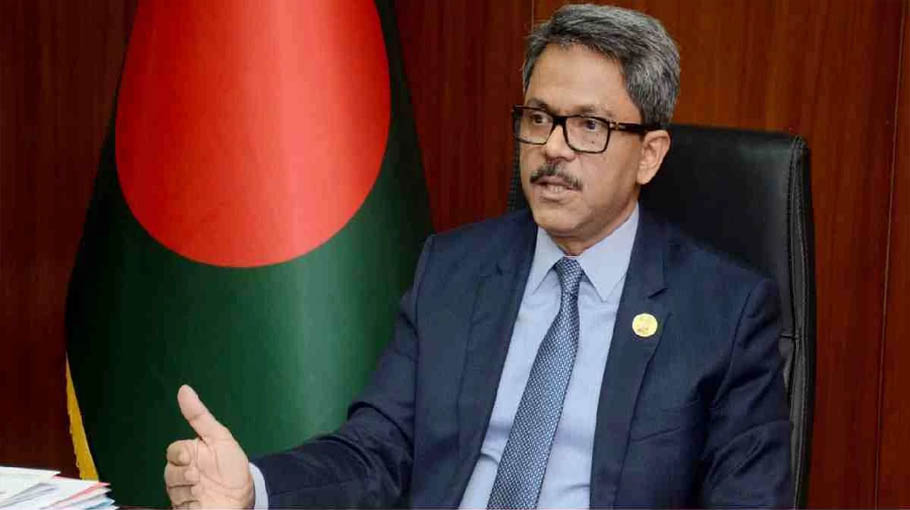‘Human rights as ‘cheap political tool’ could be counterproductive’

State Minister for Foreign Affairs Md Shahriar Alam on Saturday said presenting the human rights issues as “cheap political tool” does not bring any greater good for the country, but such tendency might prevent the country from achieving its goals on the rights fronts.
He blamed some political parties, foreign NGOs with apparent support from some locals who are taking it as a cheap political tool to wrongly present the human rights issues.
“The government has good intentions. There is no denial, absolutely no denial. But the fact is that whether we are gradually improving or not,” Alam said while speaking at a discussion on human rights.
Editors Guild-Bangladesh, a platform of editors, organised the discussion held at the Dhaka Gallery in the city's Banani.
Professor Dr Mizanur Rahman, human rights activist Khushi Kabir, Bhorer Kagoj Editor Shyamal Dutta, Prof Amena Mohsin and Prof Sadeka Halim, among others, spoke at the event moderated by Editors Guild President and Editor-in-Chief of Ekattor Television Mozammel Babu.
The State Minister said anti-crime elite force RAB is a successful institution, which earned mass people’s confidence, and the government cannot afford any step intended to malign the force.
Alam described how Bangladesh has come at this stage successfully in countering terrorism and controlling militancy when the country saw sons prepared to even kill parents. “There is no scope to undermine those achievements.”
The State Minister felt the necessity for taking the responsibility by the human rights defenders to clean their own community for having evidence based on facts.
He highlighted the importance of engaging civil society and mentioned that the government remains engaged on that front.
Alam said the government, NGOs and journalists - all need to play a role in enlightening people about the rights issues so that people do not get confused.
“I would say Bangladesh is probably one of the smartest 50-year-old countries in the world,” said the State Minister, highlighting the importance of a responsible human rights body.
Human rights activist and lawyer ZI Khan Panna described 1975 as a period when the nation witnessed the key attacks on human rights, noting that the subsequent indemnity ordinance was the worst thing to see.
“The key attack (on human rights) was in 1975. And nothing can be as worst as the indemnity ordinance,” he said.
Just 41 days into the assassination of Father of the Nation Bangabandhu Sheikh Mujibur Rahman, an indemnity ordinance was promulgated by Khandaker Moshtaque Ahmed, who grabbed state power immediately after the brutal killing by putting martial law in place.
The ordinance was issued on September 26, 1975 with an aim to block any legal or other proceedings against the killers and those who were involved in proclaiming martial law on the morning of August 15, 1975.
Panna also described the post-1975 development and how people were brutally tortured.
He claimed existence of “Aynaghar” in the post 1975 period and he was one of the victims of that. “There’re many victims,” he said, mentioning few names and brutal nature of tortures on them.
Panna also highlighted the present situation, saying there are some failures. “I would say avoiding tendency, not limitations.”
He said the CHT peace treaty is the one of the best agreements without involvement of any third party or country.
The rights activist credited Prime Minister Sheikh Hasina for this.
Talking about the glorious War of Liberation, he said Bangladesh is a unique nation in world history.
The rights activist said nobody can show a country in the world except Bangladesh whose 30 lakh people sacrificed their lives in a period of 9 months. “You can’t show in world history. Bangladesh is a unique country.”
He said it was not a conventional war, but it was a people's war.




